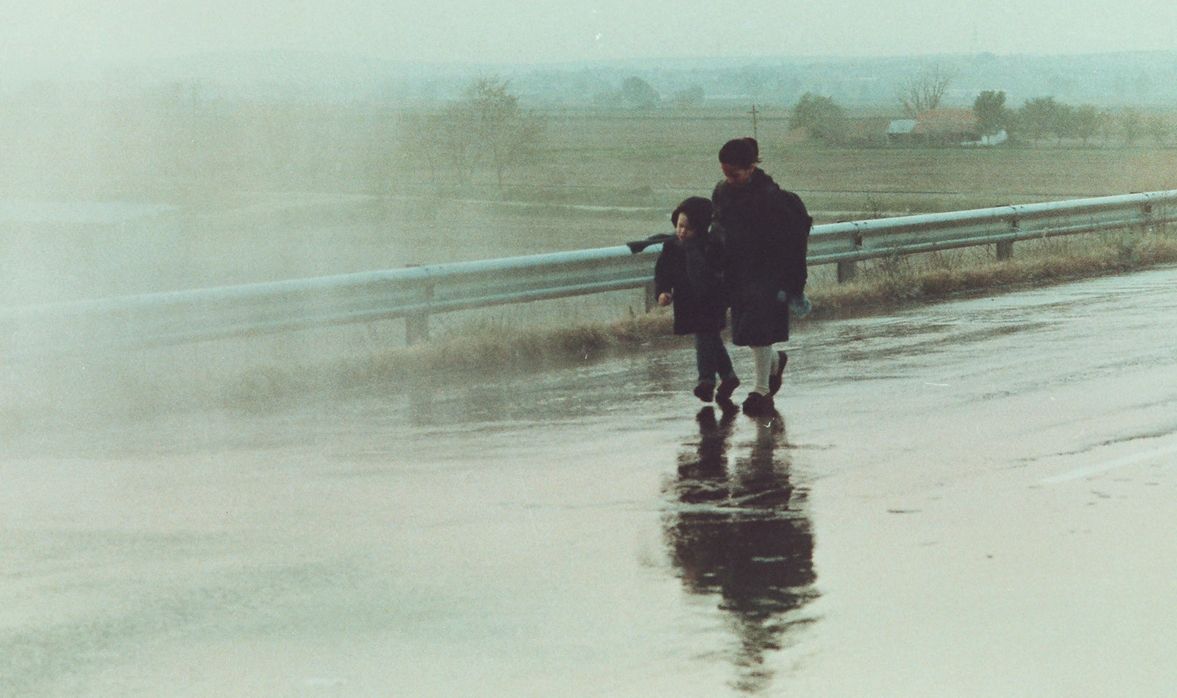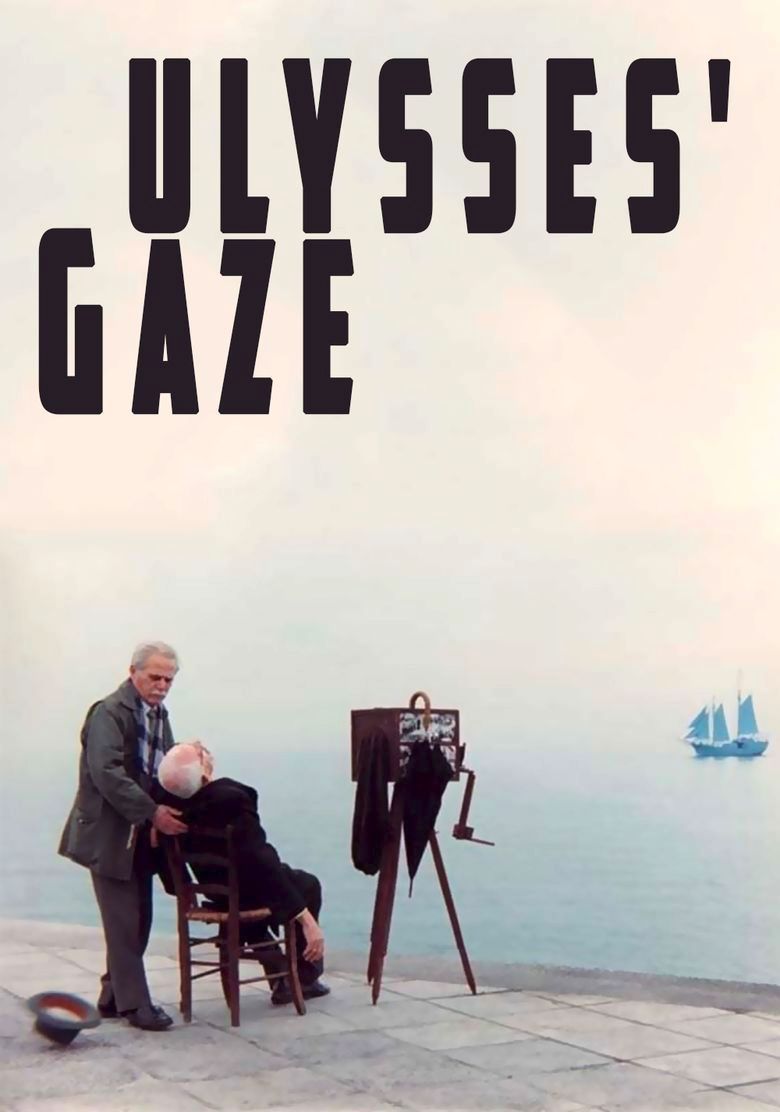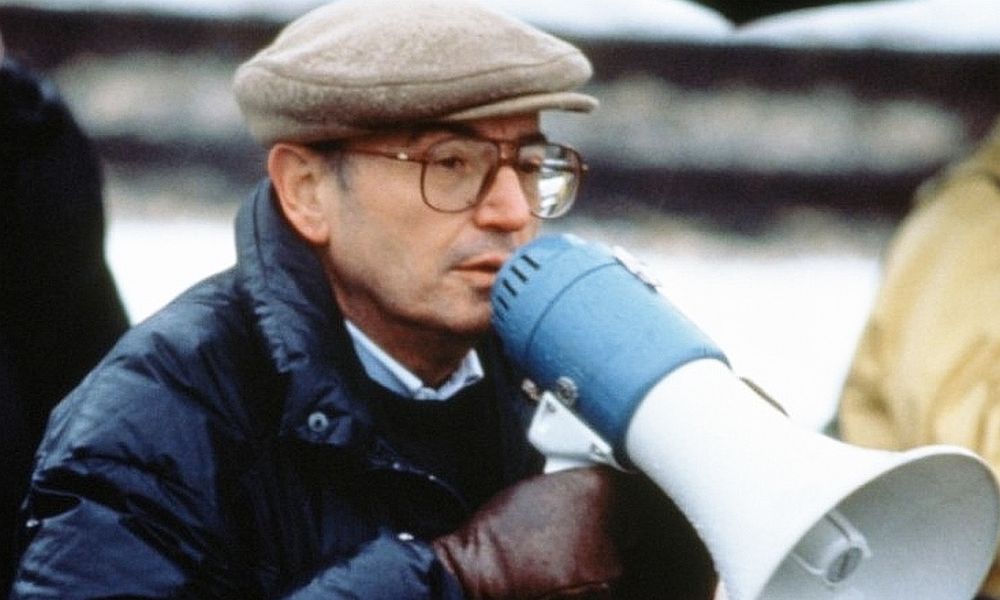"A unique cinematic sensibility, Theo Angelopolous's art fuses time, history and myth in a contemplative aesthetic of long takes and elegant travelling shots... Fêted at home, Angelopulos is elsewhere perhaps less widely known than he deserves to be." - Tom Charity (The Rough Guide to Film, 2007)
Theo Angelopoulos
Key Production Countries: Greece, Italy, France, Germany
Key Genres: Drama, Political Drama, Road Movie, Psychological Drama, Reunion Films, Period Film
Key Collaborators: Giorgos Arvanitis (Cinematographer), Tonino Guerra (Screenwriter), Eleni Karaindrou (Composer), Mikes Karapiperis (Production Designer), Petros Markaris (Screenwriter), Andreas Sinanos (Cinematographer), Yannis Tsitsopoulos (Editor), Eva Kotamanidou (Leading Character Actress), Toula Stathopoulou (Character Actress), Nikos Kouros (Character Actor), Aliki Georgouli (Leading Actress), Thanos Grammenos (Leading Actor)
Key Genres: Drama, Political Drama, Road Movie, Psychological Drama, Reunion Films, Period Film
Key Collaborators: Giorgos Arvanitis (Cinematographer), Tonino Guerra (Screenwriter), Eleni Karaindrou (Composer), Mikes Karapiperis (Production Designer), Petros Markaris (Screenwriter), Andreas Sinanos (Cinematographer), Yannis Tsitsopoulos (Editor), Eva Kotamanidou (Leading Character Actress), Toula Stathopoulou (Character Actress), Nikos Kouros (Character Actor), Aliki Georgouli (Leading Actress), Thanos Grammenos (Leading Actor)
"Theodoros Angelopoulos’s considerable achievements in cinema during the 1970s and 1980s have made him not only the most important Greek filmmaker to date, but one of the truly creative and original artists of his time… If his style shows some influences—particularly Jancsó’s one reel-one take methodology and Antonioni’s slow, meditative mood—Angelopoulos has nevertheless created an authentic epic cinema akin to Brecht’s theatre in which aesthetic emotion is counterbalanced by a reflexive approach that questions the surfaces of reality. The audience is not allowed to identify with a central character, nor to follow a dramatic development, nor given a reassuring morality." - Michel Ciment (International Dictionary of Films and Filmmakers, 2000)
"It is hard for anyone to study Angelopoulos properly. The films deserve large screens - but one would settle for wretched video versions. Film culture has come a long way since the days when it was impossible to see "old" films in any form. Nevertheless, it is the case that many people who take the medium seriously have scarcely heard of, let alone encountered, the work of a master. And there are so few masters left now." - David Thomson (The New Biographical Dictionary of Film, 2002)

Landscape in the Mist (1988)
"He established his international reputation with the epic The Travelling Players (1975), and is known for his meditative, melancholy explorations of landscape, history and the relationship between past events and current politics." - Chambers Film Factfinder, 2006
"In 1975, after the seven-year military dictatorship in his country ended, Theo Angelopoulos emerged on the international scene with the most ambitious Greek films to date... Later, Angelopoulos used widely known actors - Marcello Mastroianni in The Beekeeper (1986), Harvey Keitel in Ulysses' Gaze (1995), and Bruno Ganz in Eternity and a Day (1998). With the masterful use of slow pans and long takes, the films are rewarding metaphysical road movies." - Ronald Bergan (Film - Eyewitness Companions, 2006)
"Collaborating on his own scrips, Angelopoulos went on to assert himself as Greece's premier contemporary director. His films are typically structurally episodic and thematically ambiguous." - The Film Encyclopedia, 2012
"Angelopolous is a major director with a distinctive vision and a finely honed style who has been sadly neglected by American distributors and by most American critics." - The Virgin International Encyclopedia of Film, 1992
"The main body of his work is the impressive triptych of Days of 36 (1972), The Travelling Players (1975) and The Huntsmen (1977). The films are long (often over three hours), slow moving, rather impenetrable but ultimately rewarding allegories of Greek history and politics of this century. Using pauses, slow pans, long sequence shots, he attempts to give the spectator time to assess the films rationally." - Ronald Bergan (A-Z of Movie Directors, 1983)
"Angelopoulos' elegant, epic meditations on the crisis of personal and political identity in the Balkans tell of futile odysseys, both through a frequently grey, rainy, unglamorously industrialised Greece and through time itself: myth, rumour and history hang heavily over his characters as they seek somewhere to call 'home'." - Geoff Andrew (The Director's Vision, 1999)
Selected Filmography
{{row.titlelong}}
Theo Angelopoulos / Favourite Films
L'Avventura (1960) Michelangelo Antonioni, Citizen Kane (1941) Orson Welles, 8½ (1963) Federico Fellini, The Gold Rush (1925) Charles Chaplin, Ivan the Terrible (1944/1946) Sergei Eisenstein, Nosferatu (1922) F.W. Murnau, Ordet (1955) Carl Theodor Dreyer, Persona (1966) Ingmar Bergman, Pickpocket (1959) Robert Bresson, Ugetsu monogatari (1953) Kenji Mizoguchi.
Source: Sight & Sound (2002)
L'Avventura (1960) Michelangelo Antonioni, Citizen Kane (1941) Orson Welles, 8½ (1963) Federico Fellini, The Gold Rush (1925) Charles Chaplin, Ivan the Terrible (1944/1946) Sergei Eisenstein, Nosferatu (1922) F.W. Murnau, Ordet (1955) Carl Theodor Dreyer, Persona (1966) Ingmar Bergman, Pickpocket (1959) Robert Bresson, Ugetsu monogatari (1953) Kenji Mizoguchi.
Source: Sight & Sound (2002)
Theo Angelopoulos / Fan Club
Michel Ciment, Ulrich Gregor, Michael Atkinson, Freddy Buache, Ann Hui, Dan Fainaru, Kiyoshi Kurosawa, Dan Georgakas, John Hill, Acquarello, Zhao Liang, Stanley Kwan.
Michel Ciment, Ulrich Gregor, Michael Atkinson, Freddy Buache, Ann Hui, Dan Fainaru, Kiyoshi Kurosawa, Dan Georgakas, John Hill, Acquarello, Zhao Liang, Stanley Kwan.
"Fan Club"
These film critics/filmmakers have, on multiple occasions, selected this director’s work within film ballots/lists that they have submitted.
These film critics/filmmakers have, on multiple occasions, selected this director’s work within film ballots/lists that they have submitted.


